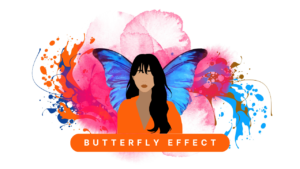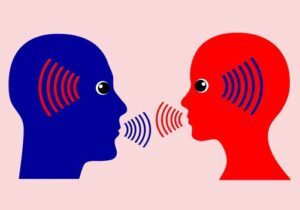Once upon a time, in a land far, far away, there was a young prince named Alexander. Alexander was the eldest son of the king and was next in line for the throne. He was a natural leader and was well-liked by his people. But despite his many talents and advantages, Alexander was not a happy person. He was often plagued by negative thoughts and feelings of anxiety and stress.
One day, Alexander heard about a wise old monk who lived in a remote mountain cave. The monk was said to be a master of mindfulness and had helped many people find inner peace and happiness. Determined to find a way to overcome his own struggles, Alexander set out on a journey to find the wise old monk.
The journey was long and treacherous, but Alexander was determined to reach his destination. He crossed treacherous mountains, raging rivers, and scorching deserts. He battled fierce beasts and outwitted treacherous bandits. But finally, after many months, he reached the cave of the wise old monk.
The monk greeted Alexander warmly and invited him to sit down and share his story. Alexander told the monk about his struggles with negative thoughts and feelings of anxiety and stress. The monk listened patiently and then began to teach Alexander the art of mindfulness.
Mindfulness, the monk explained, was the practice of paying attention to the present moment with a sense of curiosity and openness. It was a way to quiet the mind and find inner peace and happiness. Alexander practiced mindfulness every day, focusing on his breath and the sensations in his body. He learned to observe his thoughts and feelings without judgment, letting them come and go like clouds in the sky.
As Alexander practiced mindfulness, he began to notice a change within himself. His mind became clearer and his mood more positive. He was able to think more clearly and make better decisions. He was able to find inner peace and happiness, even in the midst of difficult circumstances.
Feeling grateful, Alexander stayed with the monk to continue practicing and learning from him. He learned not only the mental and emotional benefits but also the benefits to his physical health. He became healthier, calmer, and more resilient.
Eventually, Alexander returned to his kingdom, and he brought mindfulness with him. He shared his newfound wisdom with his people, and soon the entire kingdom was practicing mindfulness. The people found inner peace and happiness, and the kingdom prospered. Alexander went on to become one of the greatest and wisest kings the kingdom had ever known. And his people lived happily ever after.
Alexander’s story is not fiction but a reality to many people who found mindfulness to be beneficial in their lives. Mindfulness is the practice of bringing one’s attention to the present moment and allowing oneself to fully experience and acknowledge one’s thoughts and feelings without judgment. The power of mindfulness can be transformational, as it helps to find peace and calm in an ever-changing and often stressful world. It encourages people to live in the present and find contentment in life’s simple pleasures. Mindfulness helps to foster a more positive perspective, improves mental and physical well-being, and leads to a more satisfying and fulfilling life.
Benefits of Mindfulness
Mindfulness has been shown to have a number of benefits, both physical and psychological. Some of the benefits of mindfulness include:
Reduced stress: Mindfulness can help to reduce stress by allowing you to acknowledge and accept your thoughts and feelings without judgment. This can help to reduce the negative effects of stress on the body and mind.
Improved focus and concentration: By paying attention to the present moment, you can improve your ability to focus and concentrate on tasks. This can be helpful in both your personal and professional life.
Increased self-awareness: Practicing mindfulness can help you to become more self-aware, allowing you to better understand your thoughts, feelings, and behaviors. This can be helpful in making positive changes in your life.
Improved physical health: Mindfulness has been linked to a number of physical health benefits, including lower blood pressure, improved immune function, and reduced chronic pain.
Enhanced emotional well-being: Mindfulness can help to improve your emotional well-being by allowing you to better manage your emotions and reduce negative feelings such as anxiety and depression.
Overall, mindfulness can help you to live a more balanced, mindful, and fulfilling life.
How to Enhance Mindfulness in Daily Life?
Here are some tips on how to enhance mindfulness in your daily life:
Take breaks to focus on your breath: Take a few minutes to sit or stand in a comfortable position, close your eyes, and focus on your breath. Notice the sensation of the air entering and leaving your body.
Notice your surroundings: Pay attention to the sights, sounds, and sensations that you encounter in your environment. Notice the colors, textures, and shapes around you.
Practice gratitude: Take a few minutes each day to think about the things you are grateful for. This can be anything from the simple pleasures in life to the support of loved ones.
Engage in activities mindfully: When you are engaging in activities, try to be fully present and focused on the task at hand. This can be anything from cooking to exercising to playing an instrument.
Meditate: Meditation is a great way to practice mindfulness and increase your awareness of the present moment. There are many different types of meditation, so you can find a style that works best for you.
Remember, mindfulness is a practice and it takes time and effort to develop. It is important to be patient and kind to yourself as you work on enhancing mindfulness in your life.




